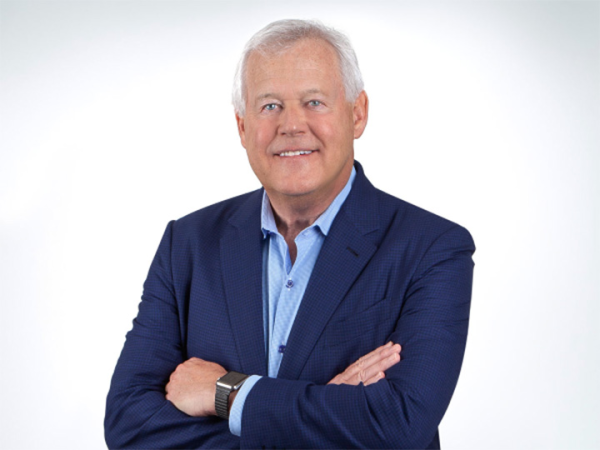A distinguished professor of the practice and senior advisor for global health at the Georgetown University School of Health discussed strategies to rebuild trust in public health at a Jan. 25 seminar hosted in Riggs Library.
Jack Leslie (SFS ’76), an international development activist with an extensive background in communications and political consulting, explained how public health stakeholders can address waning trust through community engagement, improved health communications and health care reforms that prioritize health equity.
In his talk, Leslie said countering the erosion of institutional trust that accelerated leading up to and during the COVID-19 pandemic can help better prepare the country for future public health crises.
“The trust in public health institutions has taken a big hit,” Leslie said at the event. “The decline was going on before the pandemic, and it’s had terrible consequences. So the question is, how do we pinpoint what we need to do?”
Compared to pre-pandemic data, trust in scientists has fallen considerably, with 27% of Americans reporting little to no confidence in scientists in 2023. Though the majority of Americans still report some confidence in scientists, those who expressed “a great deal” of confidence decreased from 35% to 23% between 2019 and 2023.
Leslie said that in addition to factors like social media misinformation, rising nationalism, economic recession and growing anti-elitism, the nation’s intense political polarization has exacerbated skepticism toward public health science in recent years.
“This politicization of public health — the demonization of figures like our own Tony Fauci, the masks in blue states but not in red states — it’s all taken a toll,” Leslie said.
Christopher J. King, dean of the School of Health, said political figures and health leaders must instead collaborate on solutions to restore trust in science and research.
“It’s important for us to advocate for coordinated global investments that will safeguard us and those we love from the next pandemic,” King said at the event.
While many Americans lost faith in public health institutions during the pandemic, King said that low trust in government and health workers also persists in other parts of the world.
“It should be noted that this is not an American phenomenon, these trends have existed and continue to gain traction across the globe,” King said.
In a global survey, a mere quarter of respondents said they trust their government a lot, and under half reported strong trust in doctors and nurses in 2018.

Leslie said that here in the United States, institutions including the Centers for Disease Control and Prevention (CDC) lost credibility during the pandemic because of insufficient and unclear communication tactics.
“It was amazing to me, as a communications person, how inconsistent communication was at the start of the pandemic,” Leslie said. “Some of it was because the science changes, but a lot of it was because people weren’t prepared for it and didn’t have the right expertise.”
According to Leslie, grassroots trust-building efforts, rather than top-down approaches, should be at the forefront of addressing the trust gap between the public and institutions like the CDC.
“The work that’s done at the community level, with local, trusted voices — family, doctors, nurses, faith leaders, employers — that’s the most important way to build trust in public health,” Leslie said.
Meriam Zegeye (SOH ’24), who attended the event, said this approach to trust-building resonated with her belief that community figures can be intermediates between institutions and the people they serve, due to their ability to share public health messages in a relatable, context-specific manner.
“I’m really interested in community-based interventions and a big part of that is earning the trust of the community, as they are the ones who have to sustain the intervention once you introduce it,” Zegeye told The Hoya. “If they don’t believe in it, it won’t work.”
Ashwath Tirunellayi (SOH ’27), another attendee, said that while top-down approaches may have worked for other countries during the initial stages of the pandemic, Leslie’s community-based framework may resonate better with Americans.
“The theme about making connections with community leaders, that’s very important, especially in this country where we have a very individualized culture,” Tirunellayi told The Hoya.
Leslie said he hopes that in the future, a nonpartisan, centralized hub of information might emerge as a beacon of trusted public health guidance for Americans, with academic institutions ideally posed to lead this charge.
“I think academia has a huge role to play here, they can be the one who’s seen as the neutral arbiter of whether the information is correct or not,” Leslie said.









